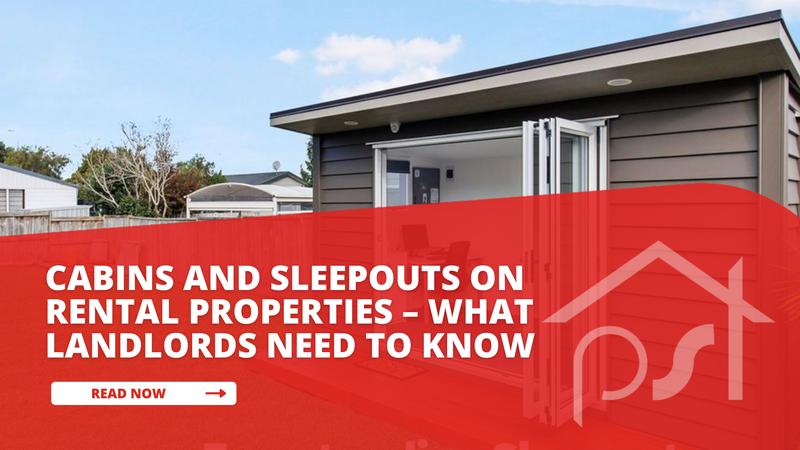
Cabins and Sleepouts on Rental Properties - What Landlords Need to Know
It’s not uncommon to see a rental property advertised with “bonus cabin” or “extra sleepout.” For many landlords, the idea of an extra room to market sounds like a win. But here’s the reality: if the cabin isn’t lawful and compliant, the risks fall back on you as the property owner. That can mean fines, Tribunal orders and reputational damage.
At Propertyscouts, we’re seeing more cabins pop up on properties, so it’s worth clearing up the rules.
What counts as a cabin or sleepout?
A cabin is a small, detached dwelling often used as extra accommodation on a property. While they’re sometimes called “sleepouts,” they can only be legally rented if they meet the Building Code, Healthy Homes Standards, and any local council rules.
Importantly:
-
A cabin cannot be rented out as a separate tenancy.
-
It can only be included as part of the main tenancy if it meets compliance requirements.
What’s required for a cabin to be legal?
Before a cabin can be included in a tenancy, it must meet the same standards as any other habitable space. That means checking:
-
Building Code compliance - was it lawfully constructed, weathertight, insulated and structurally sound?
-
Council planning rules - is it the right distance from boundaries, within site coverage limits and inside daylight recession planes?
-
Healthy Homes standards - does it have proper insulation, ventilation, natural light and no unreasonable draughts?
-
Safety basics – does it have a safe exit path, working smoke alarm and safe wiring for heating and lighting?
-
Facilities - tenants must have full access to a bathroom, kitchen and laundry in the main house.
If a cabin fails any of these checks, it cannot legally be rented - not as a bedroom, study, rumpus, or anything else.
Why this matters for landlords
Renting out a non-compliant cabin exposes you to:
-
Tenancy Tribunal action
-
Council enforcement (including Notices to Fix)
-
Financial penalties
-
Reputational damage to both you and your property manager
It’s not worth the shortcut.
What should landlords do?
If you’re thinking about buying a property with a cabin, or including an existing cabin in your rental, do your due diligence first. That might mean:
-
Running through a compliance checklist (your property manager can help)
-
Getting advice from a builder, Healthy Homes assessor, or surveyor
-
Only contacting council if you need formal consent or absolute clarity
The key is to know whether the cabin is lawful before you market the property as having an “extra room.”
Our advice
Cabins can be a great value add if they’re done right. But if they’re not compliant, they’re just a liability. At Propertyscouts, our managers are trained to spot the difference and can guide you through the process before you take any risks.
If you’re a landlord considering buying or renting out a property with a cabin or sleepout, get in touch with your local Propertyscouts office. A few quick checks upfront could save you a lot of trouble down the track.
